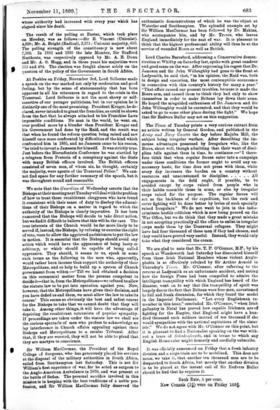We note that the Guardian of Wednesday asserts that the
Bishops at their meeting next Tuesday vvill deal with the problem of how to treat those recalcitrant clergymen who have found it consistent with their sense of duty to disobey the admoni- tions of their Bishops on a matter in regard to which the authority of the Bishops is clearly imperative. It has been rumoured that the Bishops will decide to take direct action, bet we find it difficult to believe that this will be the case. The tree interests of the Church would be far more likely to be served if, instead, the Bishops, by refusing to exercise the right of veto, were to allow the aggrieved parishioners to put the law in motion. It is essential that the Bishops should avoid any action which would have the appearance of being hasty or arbitrary, or which should be capable of being called oppressive. They should, it seems to us, speak in some such terms as the following to the men who, apparently, would rather burn incense than support the authority of their Metropolitans, and so help to build up a system of Church
government from within Till we had obtained a decision on this ceremonial matter from the persons competent to decide it—that is, from the Metropolitans—we refused to allow the statute law to be put into operation against you. Now, however, that the Metropolitans have given their decision, and you have defied us and them, we must allow the law to take its course.' This seems so obviously the best and safest course for the Bishops to take that we cannot doubt that they will take it. Among other things, it will have the advantage of depriving the recalcitrant extremists of popular sympathy. If proceedings are taken under the statute law we shall see the curious spectacle of men who profess to acknowledge no lay interference in Church affairs appealing against their Bishops and Metropolitans to a secular Tribunal. After that, if they are worsted, they will not be able to plead that they are martyrs to conscience.










































 Previous page
Previous page